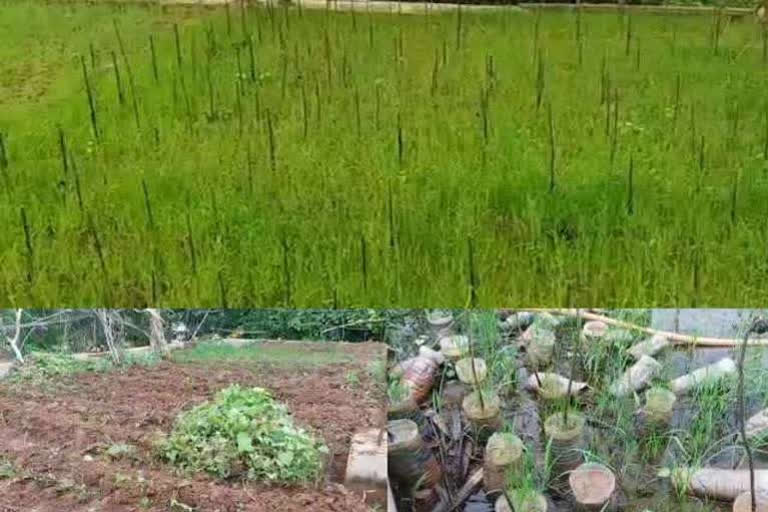Hyderabad: The Centre has broken the back of farmers by announcing a hike in fertilizer prices. A 50-kg bag of Di-Ammonium Phosphate (DAP) which was priced at Rs 700, now costs Rs 1900. Even the prices of complex fertilizers have been hiked. This development by the Centre comes just a day after announcing that fertilizer prices would not be increased, and this comes as a complete U-turn.
The Centre is now saying that old stock fertilizers will be sold for the same price while the latest stocks will be sold as per revised prices adding the new prices were " only tentative".
According to the data available in records, the quantum of old stock fertilizer which is available in the nation is 11.3 lakh tonnes. When it comes to the Telugu states alone, the requirement of fertilizers is around 31 lakh tonnes. From this, one can understand the quantum of fertilizer required for the entire country. In this context, making old prices applicable to the existing stocks sounds misleading.
Indian Farmers Fertiliser Cooperative Limited (IFFCO) states that the price hike was inevitable due to the increase in imported fertilizer raw material. Well, this rise in the prices of fertilizers definitely imposes a huge burden on the farmers.
Also read: Govt launches e-trading platform for aqua farmers, buyers
It is being suggested that the Centre needs to increase its share of the fertilizer subsidy to provide relief to the farmers. Instead of taking into consideration the suggestions made, the central government has washed its hands off by stating that fertilizer companies should turn towards single super phosphate and biofertilizers and avoid imports of high fertilizer raw materials.
Also read: Farmers ready to talk if govt invites, no change in demands: Rakesh Tikait
Now, the increase in fertilizer prices will impose an additional burden of Rs 4000 to Rs 5000 per acre on farmers who produce food grains, while for commercial crop producing farmers it would be much higher, with no relief being provided in the form of increased minimum support price (MSP). Also, in order to grow vegetables and cotton, fertilizers are required and the price rise would definitely burden the consumers. Even a steady rise in fuel prices would also increase the input costs of farming by 28 per cent, especially diesel prices.
The authority to decide urea prices fall under the purview of the Central government, and it is believed that the prices would be hiked right after the ongoing Assembly elections. However, the urea prices have not been increased at present.
Also read: Tomar appeals to farmers to call off protest as COVID cases surge
Though IFFCO states that the old stocks of Di-Ammonium Phosphate (DAP) and complex fertilizers will be sold on existing prices, it is highly doubtful that fertilizer dealers would transfer the benefit to the farmers.
Lack of awareness regarding the quantum of fertilizer to be used on various crops has also caused immense loss to the farmers. According to studies carried out in Punjab and in Haryana, chemicals (potassium and nitrogen) were used in the ratio 1:24 and 1:32 respectively, when they are supposed to be used in a ratio of 1:4. In some other states, exceeding the specifications more than double is utilized. This results in the soil losing its fertility thereby affecting the crop yield and leads to a tremendous increase in farm investments.
Also read: J'khand: Mahua fruit, an income booster for Latehar villagers
In order to overcome, indiscriminate use of chemical fertilizers which leads to poor quality yield and huge investment loss, the government must take the initiative and decide on policies. Also, agricultural officials can guide farmers at the field level.



